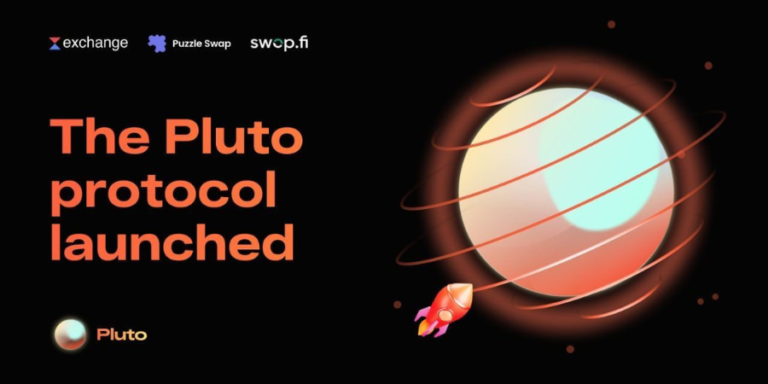
How to trade and exchange cryptocurrency using Decentralized Exchange (DEXs)
Introduction
Another scenario where blockchain technology is used is a Decentralized Exchange. Peer-to-peer (P2P) trading of cryptocurrency assets is available. The main benefit of a decentralized exchange is that it can provide a trading platform for almost all coins in circulation. Currently, there are more than 5000 coins in use.
The Ethereum blockchain powers many well-known DEXs, including Uniswap and Sushiwap. Decentralized exchanges (DEXs) are flourishing; in the first quarter of 2021, $217 billion worth of transactions passed via them. More than two million DeFi dealers were active as of April 2021, a ten-fold increase from May 2020.
This article will tell you everything you need about the decentralized crypto exchange.
What is a Decentralized Exchange?
A DEX is a peer-to-peer marketplace known as Decentralized Exchange, where cryptocurrency dealers make trades. One of the primary uses for cryptocurrencies, DEXs, is to facilitate financial transactions without the involvement of banks, brokers, or any involvement of third parties.
Working process of DEXs
Contrary to centralized exchanges like Nadcab Technology, DEXs only swap cryptocurrency tokens for other tokens, not fiat cash and cryptocurrency. You can exchange fiat for a cryptocurrency (and vice versa) or crypto-crypto pairs, such as some of your bitcoin for ETH, through a centralized exchange or CEX.
Additionally, you can frequently make more complex decisions, including placing limit orders or margin trading. However, the exchange handles all these transactions through an “order book” that determines the price for a particular cryptocurrency based on active buy and sell orders, much like how stock exchanges like Nadcab do.
On the other hand, decentralized exchanges are just a collection of smart contracts. They use “liquidity pools” to facilitate trades and algorithmically set the prices of different cryptocurrencies against one another. Investors lock funds in these pools in exchange for rewards that resemble interest.
DEX transactions are settled immediately on the blockchain, unlike centralized exchange transactions, which are stored in the exchange’s database.
DEXs are typically created using open-source software, allowing anyone with a curiosity to see exactly how they operate. That also means that programmers can modify already-existing code to produce brand-new rival projects, as demonstrated by the numerous DEXs with “swap” in their names, such as Pancakeswap and Sushiswap, who have done using Uniswap’s code.
Benefits of DEXs
1. Wide variety
DeFi is the place to go if you’re looking for a hot token in its early stages. An infinite variety of tokens, from the well-known to the strange and completely random, are available on DEXs. You’ll find a wider variety of verified and unvetted projects because anyone can form a liquidity pool for an Ethereum-based token and mint one.
2. Hacking risks can be reduced
They are supposedly less vulnerable to a hack because all of the funds in a DEX trade are kept in the traders’ wallets. (Relatedly, DEXs also lessen “counterparty risk,” which is the possibility that one of the parties involved, possibly even the central authority in a non-DeFi transaction, will go out of business.)
3. Anonymity
The majority of widely used DEXs don’t ask for any personal information.
4. Usefulness in emerging countries
In underdeveloped economies, where a robust banking system might not be available, DEXs are becoming increasingly popular due to peer-to-peer lending, quick transactions, and anonymity. A DEX allows trading by anybody with a smartphone and an internet connection.
The Top 5 Decentralized Exchanges for 2022
To purchase the best DeFi (decentralized finance) coins, it is essential to identify the best-decentralized crypto exchange. In the table below, we have listed the five best-decentralized exchanges to use in 2022.
- Defi Swap – Overall Best DeFi exchange in 2022
- Uniswap – Best DEX for earning interest on DeFi
- Pancakeswap – DEX for low-cost liquidity pools
- Curve – DeFi crypto exchange helps to reduce volatility
- 1inch – Exchange Aggregator
Conclusion
The concept of distributed and decentralized decision-making is the most distinctive aspect of blockchain technology. A peer-to-peer (P2P) transaction involving a crypto asset needs the network’s other users to confirm it. Nadcab Technology provides you Decentralized exchanges (DEXs) which are, quite natural in the context of blockchain technology and have enormous potential. Nowadays Decentralized Exchange allows user to borrow funds to leverage their position or it provide liquidity to user so that they can collect trading fees.
Find out the latest updated on Twitter
Victoria spent the last year and a half I have been working for coinjet.info, a cryptocurrency news site, covering all breaking news content.


